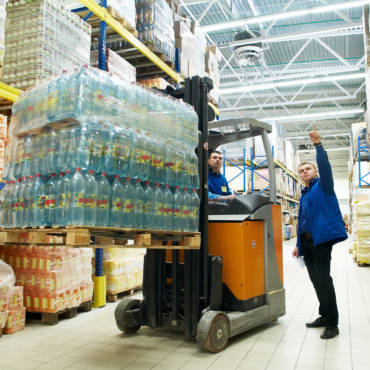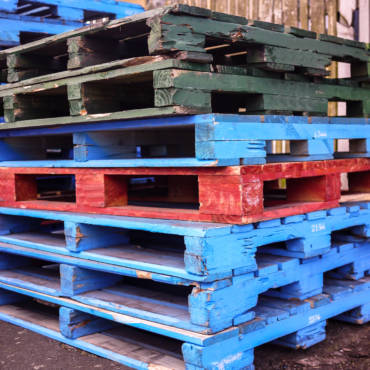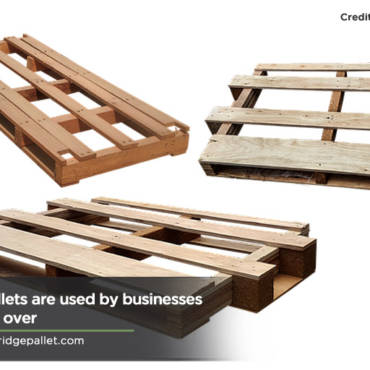Pallets are simple constructs. Comprised of layered pieces of materials (e.g. wood, plastic, or metal), pallets are built to hold a wide variety of items for shipping and transporting in bulk.
“Pallets move the world,” claims Dr. Mark White, a professor at Virginia Tech and CEO of White & Company. Despite the flurry of technological advances, pallets have remained largely unchanged; and yet they continue to play a crucial role in logistics, storage, and transportation of goods. They are a mainstay in warehouses around the world, making it easy for companies to streamline their supply chains.
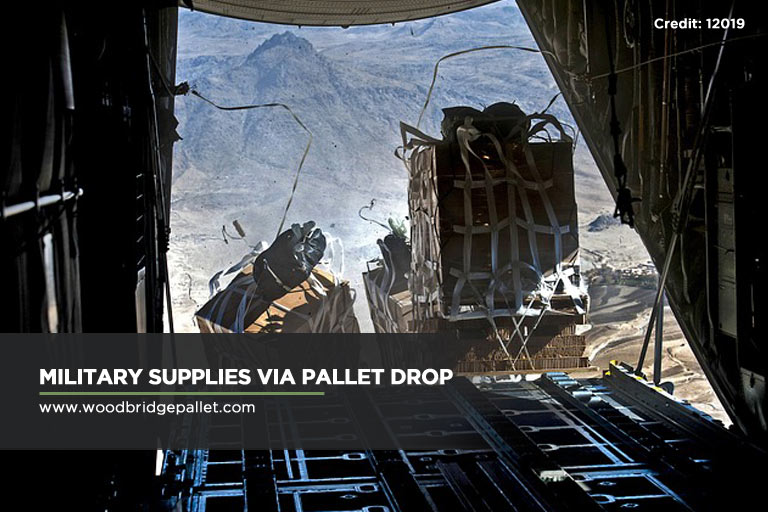
The Critical Role That Pallets Play
The combination of small order sizes, demand for quick delivery, and the growth of e-commerce is putting pressure on companies to find creative and effective means to move supplies. Pallets, though primitive compared to other advances, play a starring role in the process and can be found in various sectors outside commercial ones—including the military.
Pallets are so valued that some companies have designed products around pallets. One company, Ikea, did this with their “Bang” mug, for the sole purpose of having the ability to fit more product on a pallet. The redesign made it possible to fit 2,204 cups on a pallet—a whopping 1,304 more than the original 864. This allowed the company to save on both space and shipping costs by as much as 60%.
Most companies, however, do not have to go to such an extent to move supplies since pallets by themselves serve to:
- Reduce loading and unloading time – Instead of moving boxes or packages one at a time, pallets allow for the moving of products in bulk with ease. With pallets, you can move heavy items, oversized loads, and large quantities of small goods from one location to the other faster and with less effort.
- Maximize space – Limited space in warehouses, storage facilities, and vehicles means that companies need to implement strategies to optimize it. A company is faced with the dilemma of fitting as many products as they can in one space. More often than not, this results in a real-life game of Tetris. Pallets are stackable, allowing vertical warehouse space to be put to good use whether stored on warehouse pallet racks or displayed in retail stores.

- Enhance warehouse and transportation safety – A properly loaded pallet is safer than loosely stacked products that can fall or tumble and create the potential or injury. While it’s true that a poorly loaded pallet can also present a hazard, training your crew to load pallets efficiently and safely can decrease the chance of on-the-job injuries.
- Save on warehouse and logistics costs – A reduction in the time and space used translates to more savings for the company. Less time spent on loading and unloading eliminates the need for overtime. This contributes to more efficient scheduling lowering the money spent on labour costs. Less space used during transport means more goods can be loaded, decreasing shipping costs.
- Ensure product safety and preserve product quality – Products in transit are in great danger of incurring damage. Goods damaged during transport can have adverse effects on a business. It results in reduced inventory available to customers leading to lost sales, forfeited market shares, and a negative impact on brand image and reputation. Pallets can help prevent that by providing adequate protection from impact and spillage. They work well with other safeguards like shrink wrap and pallet collars.
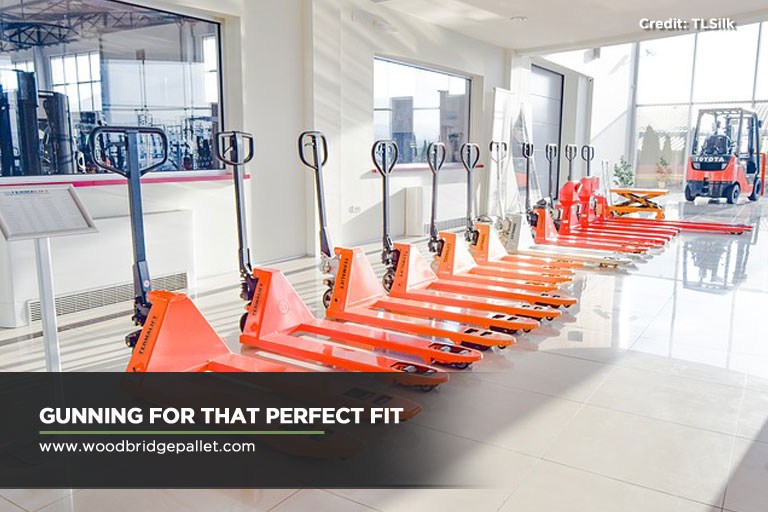
Consider the following when selecting pallets:
- Purchase price – Work with your budget. Choose what is the most cost-effective, not the cheapest. This way, you can get the best value for your investment.
- Strength – Different pallets have varying carrying loads. The strength of wood, for example, depends on the thickness and the type of wood used. Hardwoods, although more expensive, are also more robust than softwoods, and can carry heavier loads without losing their shape. However, they are a feasible option when transporting lightweight items. Their design can also contribute to strength—block pallets are generally stronger than stringer ones.
- Durability – Pallets should last long despite heavy use and constant transfers from cargo to cargo. Heavy loads and high quantity shipments require longer-lasting pallets.
- Application – Your choice of pallets should also be based on the types of equipment you use. Forklifts and pallet jacks typically have similar designs; however, other equipment may not work as well with pallets. The type of product you are transporting also matters.
- Sustainability – Global efforts to go green have placed a higher emphasis on using sustainable items. Adhering to environmentally friendly measures can benefit companies in terms of cost and brand reputation. Factors like reusability and recyclability should be prioritized.
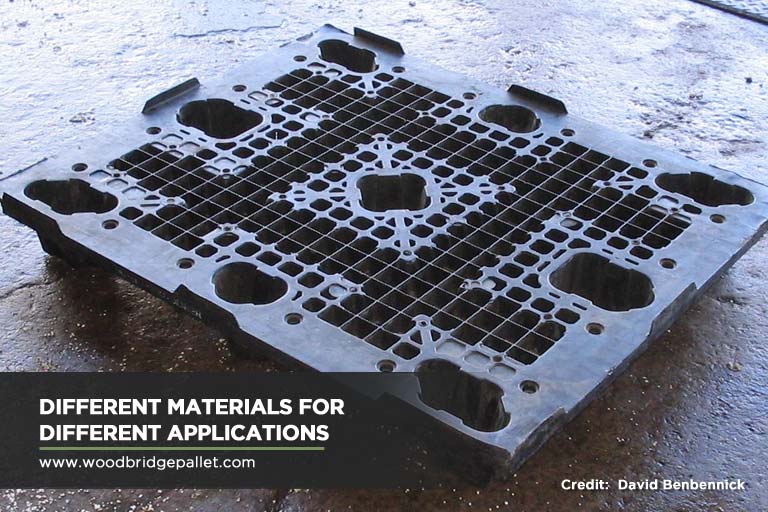
Types of Pallets
Another factor to take into account is material. While wood pallets continue to dominate the market, plastic and metal pallets are beginning to gain momentum. Each type offers a different value to different industries.
- Wood – Wood pallets have the lowest up-front costs, can hold more weight, and are easily reused, recycled, and repaired. Damage can also be prevented, making wood pallets increasingly sustainable. Widely available and versatile, they are ideal for general applications and traditional supply chains. They are also highly customizable at a minimal cost and quick turnaround.
- Plastic – Plastic pallets come at a higher cost than wood pallets, but they are durable. Easy to clean and devoid of sharp edges or splinters, they are excellent for applications that require sanitation, specifically for the transportation of food and chemicals.
- Metal – Metal pallets are the most expensive, but they are also the strongest. Durable and easy to clean, they provide long-term value for closed-loop supply chains. Metal pallets are ideal for use in the food and air freight industries.
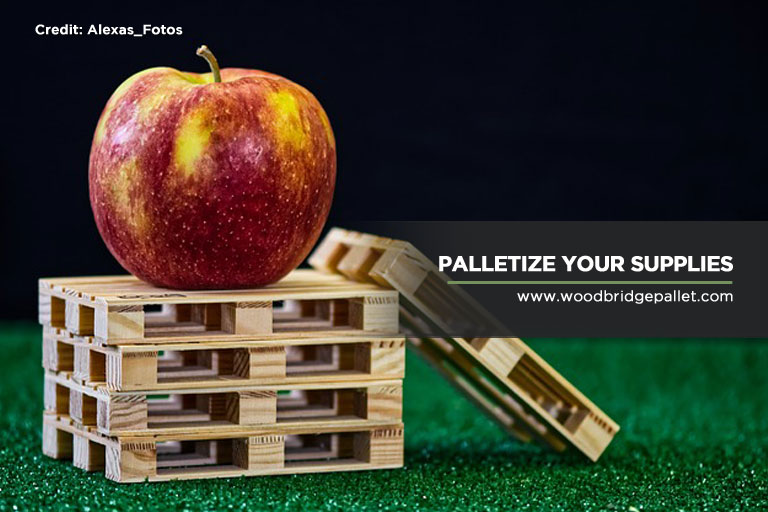
Whichever type you choose, pallets are efficient and cost-effective, and they remain an invaluable part of the supply chain. If you need pallets, whether new or used, consider the various factors so you can acquire the best ones for your product and shipping needs. Your options are endless.
Woodbridge Pallet has been a leading provider of quality new, used, and customized wood pallets. We also handle a variety of pallet services, including pallet design, heat treatment, retrieval and purchase, and repair and management. We cater to all industries and sectors in Ontario and have the capacity to accommodate pallet request and volume requirement.
Call us at (905) 856-3332 or click here to get a quote.



